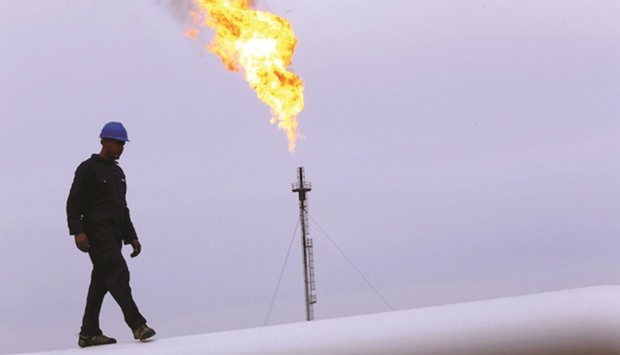Oil exports from northern Iraq nearly halved in February due to the ongoing outage of a pipeline to Turkey, wiping $350mn off the cash-strapped Kurdistan region’s revenues as it battles Islamic State.
The autonomous region of Iraq is almost entirely dependent on revenue from its exports through the oil pipeline to Turkey, which has been idle for nearly three weeks, reducing flows to an average of 350,067 bpd last month.
After allocating $70.9mn for producers, the region was left with just $233mn in export revenue, its Ministry of Natural Resources said yesterday, less than one third of the amount needed to cover a bloated public payroll.
Heavily in debt, the Kurdistan Regional Government (KRG) has been struggling to meet the payroll as global oil prices plunge, stoking public discontent when its forces are battling the Islamic State.
“The current financial position of the KRG is unsustainable,” said ‘Athanasios Manis, a research fellow at the Middle East Research Institute (MERI), a Kurdish think-tank. He said it would be difficult for the KRG to carry out the necessary structural reforms unless it received external financial assistance to “stabilise its macro-economic environment”.
European ambassadors and Iraq’s World Bank representative met with Kurdish officials yesterday to discuss how the international community could help the region through the crisis.
It is a rude awakening for the Kurds, who enjoyed an economic boom until 2014 when the Baghdad government slashed funding to their region in a still unresolved dispute over how to share revenue and power.
War with the IS and an influx of people displaced by violence in the rest of Iraq have only increased the strain, which a decade of mismanagement and corruption put the region in a weak position to deal with.
The Kurds began ramping up independent oil sales last June in an effort to plug the gap, but low energy prices meant the region was still running a multimillion dollar monthly deficit even with exports at a peak of 600,000 bpd in January.
The pipeline outage has widened that further.
Carrying crude from fields in the Kurdish region and Kirkuk to the Mediterranean port of Ceyhan, the pipeline has been idle since February 17 as a result of “circumstances” inside Turkey, the ministry said, without elaborating.
Turkey’s energy ministry said on February 27 it was repairing the pipeline, and an industry source based in the Kurdistan region told Reuters on Sunday the work would be completed “in a day or two”.
The pipeline runs through Turkey’s restive southeast, which has seen the worst violence since the 1990s after a two-year ceasefire between the government and Kurdish militants broke down last July.
Turkey has accused the Kurdistan Workers’ Party of blowing up the pipeline, but the militant group denies it.

Heavily in debt, the Kurdistan Regional Government (KRG) has been struggling to meet the payroll as global oil prices plunge, stoking public discontent when its forces are battling the Islamic State
